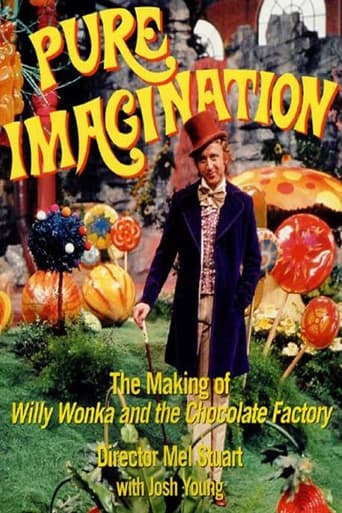Ensofter
Overrated and overhyped
XoWizIama
Excellent adaptation.
Roxie
The thing I enjoyed most about the film is the fact that it doesn't shy away from being a super-sized-cliche;
Curt
Watching it is like watching the spectacle of a class clown at their best: you laugh at their jokes, instigate their defiance, and "ooooh" when they get in trouble.
l_rawjalaurence
Jorgen Leth's film takes us back to the 1976 Paris-Roubaix spring classic cycle race, notable for its cobbled streets which were seldom used - except for this race. The film concentrates on several of the stars of the time, including Eddy Merckx and the then up-and-coming star Freddy Maertens. With commentary provided by the late David Saunders, at the time the major figure in cycling journalism, A SUMMER Sunday IN HELL is a treat for cycling nostalgics. However Leth transforms the event into something more than just a race: through skillful use of different types of shot - close-ups, aerial shots of the pack of racers passing through chocolate-box French towns, slow-motion shots - he makes aware of the aesthetic beauty of the event. To watch racers passing through streets in geometric shapes, or to watch an individual cyclist pedaling so hard like an automaton, is to understand why the sport exerts such a fascination for mass audiences. Leth is also concerned with the race as a social occasion: we see several shots of spectators passing the time in bars by singing, drinking, or eating; or small groups of village people passing the time of day on a glorious summer's day; or panning shots of spectators lining the route and cheering as the cyclists speed by. The film is a social history of the time, showing the hair-styles, clothes and mannerisms characteristic of the mid-Seventies. Saunders' commentary is sparse; on several occasions all we hear are the cyclists, their team-members and other officials talking in a variety of languages - French, Flemish, Italian. No subtitles are provided; but this is deliberate, as Leth wants to emphasize the internationality of the occasion, that contrasts with the rural settings in which the race takes place. The world of professional cycling was (and still is) a self-enclosed world, whose riders move from race to race; they live in a sporting bubble, which takes little or no account of the different venues in which the events take place. Unlike the spectators watching the event, the cyclists themselves are divorced from the 'real' world of daily life. A SUMMER Sunday IN HELL is a fascinating sociological document that works on several levels. Definitely worth a look.
paul2001sw-1
The "Hell of the North", the infamous annual bike race from Paris to Roubaix, is an epic sporting contest; and Joergen Leth, a film-maker with a long-term love of professional cycling. Yet Leth's 1976 film of the race is a documentary that seems quaint with age. In a world where sporting events are everywhere on television, there's no-where Leth's film takes us we can't see everyday live on our screens; and the quaint English commentary dissipates the tension of a sporting event through it's use of a tone that is one part anthropology, one part an episode of 'The Clangers'. It's also surprisingly light on relevant sporting detail: the challenge of the great Belgian, Eddy Merkkx, is described without any reference to the fact that this was the tail end of his great career, when his powers were in decline and he was in fact never again to win a big race. When made, this might have been revolutionary; as it is, it pales besides the live action you can see alongside side it.
plaszion
It has all the necessary elements to be a good documentary. All but the sound mixing. Which is not that bad but the transition and mixing is sometimes....just annoying. During this documentary we see from a helicopter view the riders as they pass along the crowd with some Gregorian type of chanting in the background...no cycling noises no cars no nothing besides some slumber kind of classical music...Guess that's the 70s. And the slow motion to epitomize the heroic struggle not helping either. We want to see the rush, the unforgiving cruelty of the race. The narration is OK, very strict about what's happening and that's good. Very realistic compared to other documentaries depicting the same era, the announcer at the start is actually the one present at the Tour nowadays, if I'm not mistaken...a little older maybe :)A few minutes with no subtitles, nothing disturbing the overall comprehension of the situation. All in all, a catchy movie this one, with so much resemblance with the present day races in France, not surprisingly. If we take away the elements that were put in the movie to make it a documentary, it's if you are there watching. And that's all you need.
mkaus
This is a bike-fanatics dream of a movie, portraying the disciplin and heroism of the winners alongside the painfull realisation of own limits of the losers. The race takes place in the northern parts of France and lower countryside of Belgium, with a spectacular finish on the old stadium of Roubaix.

